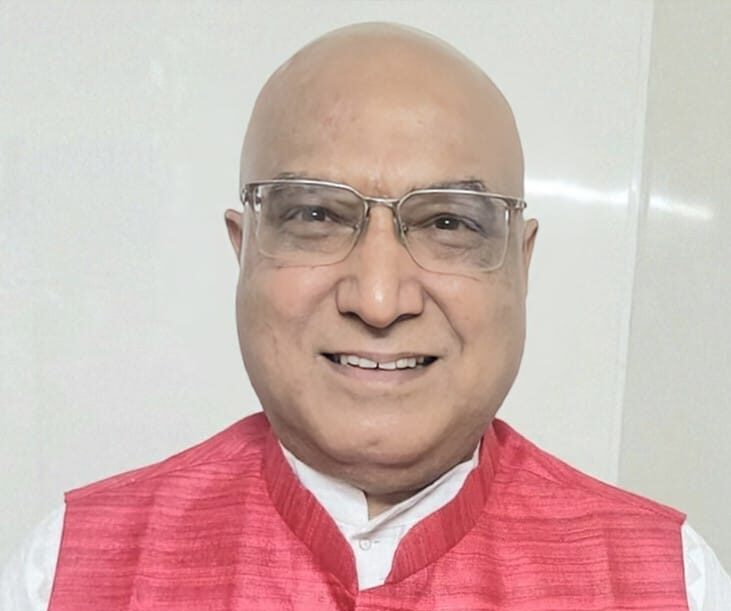Revolutionizing Bureaucracy: Needonomics Approach to Efficient Governance
By Prof. Madan Mohan Goel
North News
Chandigarh, January 3
A key issue within the current system is the contrasting habitual mindsets of politicians and bureaucrats. Politicians, driven by the need to secure votes, often say “yes” to everything, even when such promises are impractical or unsustainable. This tendency leads to unrealistic expectations, short-term policies, and a lack of long-term vision. While this approach may generate political favor in the short run, it compromises the integrity and sustainability of governance.
On the other hand, the bureaucracy is traditionally conditioned to say “no” to most proposals, requests, or reforms, often due to red-tapism, inefficiency, or fear of accountability. This reflex stifles progress, innovation, and responsiveness, creating unnecessary delays and frustration for citizens.
The Needonomics framework advocates for a reversal of these habitual responses. Politicians must learn to say “no” to certain demands or promises that are unrealistic, impractical, or misaligned with long-term goals. This “no” should be informed by the principles of responsible governance and ethical consideration. Politicians must focus on saying “no” to populism that undermines the integrity of governance and say “yes” only to policies that are truly aligned with the real needs of society.
Bureaucrats, in contrast, must learn to say “yes” more often. They should embrace a mindset that is responsive, proactive, and solution-oriented. Instead of resisting change or succumbing to bureaucratic inertia, bureaucrats should say “yes” to reforms, innovations, and streamlined processes that enhance service delivery and governance efficiency. This shift will not only improve the bureaucracy’s responsiveness but also align public administration with the needs and expectations of the people.
By reversing these habitual tendencies—politicians learning to say “no” when necessary and bureaucrats learning to say “yes” to progress—governance can become more transparent, effective, and truly aligned with the real needs of society. This cultural shift is a core principle of the Needonomics approach, which emphasizes thoughtful decision-making, the prioritization of real needs, and a commitment to sustainable development.
The transformation of bureaucracy is an urgent necessity in today’s rapidly evolving world, and the Needonomics school of thought provides a comprehensive blueprint for this change. At its core, Needonomics aims to address the true needs of the people, not just through the traditional lens of economics, but through a holistic, wisdom-driven approach that encompasses intellectual, emotional, and spiritual dimensions. The bureaucracy, as it exists today, is often encumbered by outdated procedures and red-tapism, which impede progress and efficiency. The need to reframe this system is immediate, requiring the adoption of Needonomics principles to promote transparency, responsiveness, and effective governance.
E-Governance and Time Management
A fundamental pillar of transforming bureaucracy is the integration of e-governance systems that streamline operations, enhance transparency, and eliminate unnecessary delays. By digitizing procedures, the entrenched bottlenecks of red-tapism can be dismantled, ensuring an uninterrupted and efficient workflow. Time management, particularly the careful handling of e-files and digital records, plays a crucial role in ensuring that no task is left pending or delayed. E-governance is more than a technical solution—it represents a philosophical shift towards greater responsibility and accountability, where each action is traceable and scrutinizable.
Monitoring Political Instincts: Care and Conviction
Politicians’ best and worst instincts must be closely monitored to ensure that governance is always in the service of the greater good. The temptation to misuse power for personal or political gain must be countered through robust accountability measures. Decisions should always be made with the collective benefit of society in mind. Needonomics calls for a system of checks and balances where self-interest is checked by the moral responsibility to act in the public’s best interest, guided by the principles of humility, wisdom, and dedication.
A Monk Mind for Governance
In alignment with the Needonomics philosophy, the governance process must shift from the impulsive, short-term thinking of the “monkey mind” to the reflective, long-term approach of the “monk mind.” The shift from Artificial Intelligence (AI), often misused for self-interest, to Spiritual Intelligence (SI) is key. SI encourages long-term, sustainable decisions that align with ethical values. Governance based on SI fosters compassion, wisdom, and foresight, ensuring policies and decisions are not only technically sound but also aligned with the holistic welfare of all. It encourages leaders to act with a sense of duty and care, informed by spiritual awareness.
Principles of Public Expenditure
A cornerstone of Needonomics in public administration is the application of the canons of public expenditure as set forth by Bharat Ratna Dr. B.R. Ambedkar. These include faithfulness, wisdom, and economy in execution. Faithfulness demands that public trust is upheld with transparency and integrity. Wisdom dictates that public funds are spent based on informed decisions, addressing the genuine needs of the people. Economy ensures resources are used efficiently, avoiding waste and mismanagement. These principles must guide every aspect of public expenditure, ensuring it is both effective and accountable.
Street SMART Steel Frame
Dr. Ambedkar envisioned a “steel frame” of governance—a robust, resilient structure capable of delivering results. However, to fully realize its potential, this frame must be infused with the principles of being “Street SMART”—Simple, Moral, Action-oriented, Responsive, and Transparent. A bureaucracy that adheres to these values will not only function more efficiently but will also be trusted by the public. The Needonomics approach can help build a governance structure that is not only functional but deeply committed to social equity, justice, and progress.
Replacing Haste with the “Palli Palli” Culture
India’s governance structure has often been plagued by the inefficiencies of “haste makes waste,” where decisions are made hastily, processes are fragmented, and outcomes are compromised. The “Palli Palli” culture of South Korea offers an inspiring model—emphasizing efficiency and speed without sacrificing quality. By adopting a similar approach in India, where public servants are encouraged to act promptly yet precisely, we can replace the paralysis of indecision and the chaos of rushed decisions with a steady, consistent flow of effective governance.
Conclusion
The Needonomics School of Thought provides a clear roadmap for transforming bureaucracy into a responsive, efficient, and transparent system. By integrating e-governance, monitoring political instincts, adopting spiritual intelligence, and adhering to principles of public expenditure, we can create a system that effectively meets the needs of the people. The ultimate goal is clear: a bureaucracy that operates with integrity, guided by faithfulness, wisdom, and economy, and a society that benefits from governance that is both efficient and compassionate. The time to act is now—to transform bureaucracy into a truly Needonomics system that serves the welfare of all.
(Prof. Madan Mohan Goel, a distinguished academic and administrator, is a three-time Vice-Chancellor and a superannuated Professor of Economics from Kurukshetra University, Kurukshetra (KUK). With 46 years of teaching experience and 17 years in administrative roles, he has served as Vice-Chancellor of Starex University, Gurugram, and Jagannath University, Jaipur. He also held the position of Director-cum-Vice-Chancellor at the Rajiv Gandhi National Institute of Youth Development)
Disclaimer: The views and opinions expressed in this article are solely those of the author and do not necessarily reflect the official stance or position of North News. Readers are encouraged to consider multiple perspectives and make informed decisions based on their own judgment.
















